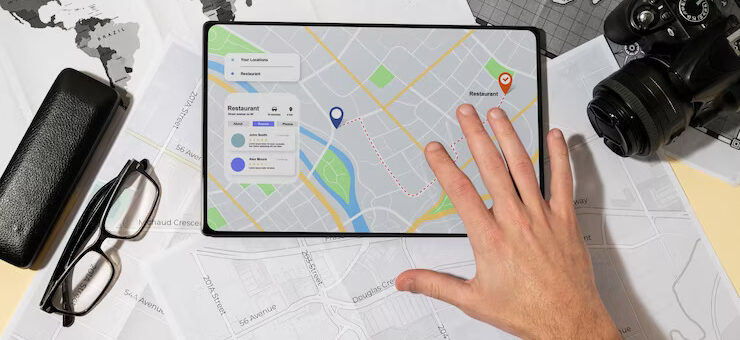The Future of Location-Based Services: Exploring the Potential of Geocoding APIs
- 1 How Geocoding APIs Work
- 1.1 The Basics of Geocoding APIs
- 1.2 Understanding the Geocoding Process
- 1.3 Integrating Geocoding APIs into Applications
- 2 Benefits of Using Geocoding APIs in Location-Based Services
- 3 The Future of Location-Based Services: Trends and Predictions
- 3.1 The Rise of Hyperlocal and Context-Aware Services
- 3.2 The Integration of Augmented Reality and Geospatial Data
- 3.3 The Growing Importance of Privacy and Security
- 4 Challenges and Opportunities in Geocoding API Development
The world is rapidly evolving, and location-based services are becoming an essential component of modern technology. As these services continue to advance, geocoding APIs are playing an increasingly critical role in facilitating accurate location-based data. As such, it’s essential to understand how geocoding APIs work, the benefits they offer, and the future trends and challenges in the location-based services industry.
How Geocoding APIs Work
The Basics of Geocoding APIs
Geocoding APIs are designed to convert human-readable addresses or place names into geographic coordinates (latitude and longitude). This process enables developers to build applications that rely on location-based data and services, such as mapping, navigation, and local search. The reverse process, known as reverse geocoding, involves transforming geographic coordinates into a human-readable address or place name.
Understanding the Geocoding Process
The process of geocoding typically involves submitting an address or place name to a geocoding service, which then returns the corresponding geographic coordinates. This is achieved through a combination of data sources, algorithms, and matching techniques that help identify the best possible match for a given input. Some geocoding services also offer additional features such as https://distancematrix.ai/geocoding-api, address validation, normalization, and autocomplete suggestions to enhance the accuracy and usability of geocoding results.
Integrating Geocoding APIs into Applications
Geocoding APIs are typically provided as web services that can be easily integrated into various applications and platforms. Developers can access these APIs through RESTful endpoints, making it simple to incorporate geocoding functionality into web and mobile applications, as well as backend systems and databases. By leveraging geocoding APIs, developers can build sophisticated location-based services that enhance user experience, improve data quality, and enable advanced analytics.
Benefits of Using Geocoding APIs in Location-Based Services
Improved Accuracy and Efficiency
Geocoding APIs play a crucial role in ensuring the accuracy and efficiency of location-based services. By converting human-readable addresses into precise geographic coordinates, applications can provide more accurate and relevant results for users, such as driving directions, local search results, and customized content based on the user’s location. This, in turn, can lead to improved user satisfaction and increased engagement with location-based services.
Enhanced Data Quality
Geocoding APIs can also play a critical role in enhancing the quality of location-based data. By standardizing and validating addresses, geocoding services can help organizations ensure that their datasets are clean, accurate, and up-to-date. This can be particularly valuable for businesses that rely on location data for critical operations, such as logistics, real estate, and emergency services.
Advanced Analytics and Insights
By transforming addresses and place names into geographic coordinates, geocoding APIs enable organizations to conduct advanced spatial analysis and gain valuable insights into their operations, customers, and markets. For example, businesses can use geocoding data to identify patterns and trends in customer behavior, optimize marketing campaigns, and make informed decisions about expansion and resource allocation. Additionally, geocoding APIs can help organizations better understand the geographic context of their data, enabling them to identify opportunities and risks based on factors such as proximity, density, and accessibility.
The Future of Location-Based Services: Trends and Predictions
The Rise of Hyperlocal and Context-Aware Services
As location-based services continue to evolve, there is a growing emphasis on providing hyperlocal and context-aware experiences for users. Geocoding APIs are essential in enabling these types of services, as they facilitate the integration of accurate location data into applications and platforms. By leveraging geocoding APIs, developers can create innovative new services that cater to the unique needs and preferences of users based on their specific location and context.
The Integration of Augmented Reality and Geospatial Data
Another significant trend in the future of location-based services is the integration of augmented reality (AR) and geospatial data. By combining geocoding APIs with AR technology, developers can create immersive experiences that blend the digital and physical worlds, enabling users to interact with their surroundings in new and exciting ways. This could lead to a wide range of applications, from gaming and entertainment to navigation, education, and beyond.
The Growing Importance of Privacy and Security
As location-based services become increasingly prevalent, the need for robust privacy and security measures becomes more critical. Geocoding APIs play a pivotal role in ensuring that location data is processed and stored securely, helping to protect the sensitive information of users and organizations alike. Looking ahead, it will be essential for developers and service providers to prioritize privacy and security in the design and implementation of location-based services.
Challenges and Opportunities in Geocoding API Development
Addressing Data Quality and Coverage
One of the primary challenges in geocoding API development is ensuring the quality and coverage of the underlying data. This involves collecting, maintaining, and updating extensive datasets of address and place information, as well as developing algorithms and techniques to accurately match user inputs with the correct geographic coordinates. As the world continues to change and grow, it’s essential for geocoding service providers to stay up-to-date with the latest data and technology to ensure the accuracy and relevance of their services.
Navigating Legal and Regulatory Frameworks
Another challenge in geocoding API development is navigating the complex legal and regulatory frameworks surrounding location data. This can include issues related to data privacy, security, and intellectual property, as well as compliance with local and international laws and regulations. As the use of location-based services continues to expand, it’s vital for service providers to stay informed about the evolving legal landscape and to develop solutions that are both innovative and compliant.
In conclusion, the future of location-based services is closely tied to the potential of geocoding APIs. As these services evolve and become more sophisticated, geocoding APIs will play an increasingly crucial role in facilitating accurate, context-aware experiences for users. By understanding how geocoding APIs work, the benefits they offer, and the trends and challenges shaping the industry, developers, businesses, and users alike can unlock the full potential of location-based services and create a more connected, informed, and engaging world.





















